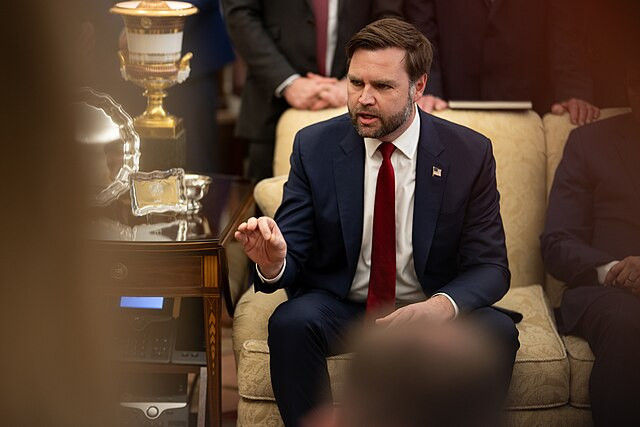U.S. Vice President JD Vance canceled a potential visit to Israel this week, reversing course after Israeli forces expanded their ground operations across Gaza, a move that exposed growing unease within the Trump administration over the direction of Israel's military campaign. A senior U.S. official told Axios that Vance had initially considered a Tuesday stop in Israel following his attendance at the pope's inauguration in Rome, but ultimately decided against it.
While the vice president's office cited "logistical constraints" in a statement to reporters, a U.S. official familiar with internal deliberations said logistics were not the actual reason. "Vance made the decision because he didn't want his trip to suggest the Trump administration endorsed the Israeli decision to launch a massive operation at a time when the U.S. is pushing for a ceasefire and hostage deal," the official said.
The planned visit, never formally announced, had prompted discussions between U.S. and Israeli officials over the weekend. Israeli media speculated Vance might arrive Tuesday, but the White House quickly quashed those reports. "No additional visits were at any point decided upon, and logistical constraints have precluded an extension of his travel beyond Rome," a spokesperson said.
The backdrop to Vance's canceled stop is Operation Gideon's Chariots, an expansive Israeli ground offensive launched Friday, aimed at displacing Gaza's population and neutralizing Hamas's remaining infrastructure. On Sunday, the Israel Defense Forces confirmed active ground maneuvers in multiple areas. The military on Monday ordered full evacuations from Khan Yunis, warning of "an unprecedented attack" in the southern region.
The Biden-Trump transition-era ceasefire proposal, led by special envoy Steve Witkoff, remains in flux. Witkoff recently presented updated terms for a deal to secure the release of hostages and facilitate humanitarian aid. Under mounting pressure from the U.S. and European allies, Israel's Security Cabinet on Sunday agreed to resume the transfer of humanitarian aid through existing channels until a new international mechanism is established.
The latest escalation highlights emerging tensions between Washington and Israeli Prime Minister Benjamin Netanyahu, whose refusal to accept a war-ending agreement has drawn criticism in diplomatic circles. When asked about Netanyahu's stance, President Trump told Fox News, "No, look, he's got a tough situation. You have to remember, there was 7 October that everyone forgets. It was one of the most violent days in the history of the world - not the Middle East, the world, when you look at the tapes."
Trump added that Netanyahu has "fought hard and bravely," though the administration has increasingly prioritized humanitarian de-escalation over military escalation. Since Israel resumed operations in March, more than 1,340 Palestinians have been killed, including hundreds over the past week alone, according to Palestinian health officials.





